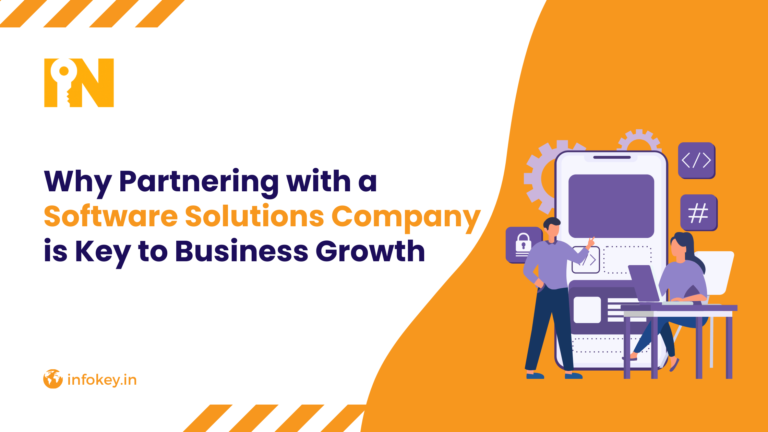Introduction
What is Custom Software?
- Auto-reminders for clients who reorder oils every wedding season
- A built-in section to track lab test certifications for each oil batch
Why Custom Software Was Once Considered a Luxury?
Custom software wasn’t always seen as a practical solution for most businesses. For years, it carried the tag of being expensive, time-consuming, and resource-heavy. The cost of hiring developers, setting up infrastructure, and waiting months for deployment made it an option only large enterprises could justify. For smaller businesses, the idea of investing in something built from scratch, when ready-made tools were readily available felt unnecessary and out of reach.
Off-the-shelf software offered immediate access, basic functionality, and a lower price point, even if it came with limitations. Plus, the lack of easily available development partners who understood industry-specific needs made custom software feel like a risky, overly complex project. As a result, many businesses settled for generic tools that didn’t fully support their workflows, simply because customization felt like a luxury not a necessity.
What’s Changed in the Business Landscape?
Let’s face it. Running a business today isn’t the same as it was five years ago. Customers expect everything faster be it replies, deliveries, or even the way you manage their experience. “Good enough” systems aren’t good enough anymore. Businesses, big and small, are moving online, automating processes, and turning data into decisions. If you are stuck with a tool that makes you jump through hoops to do basic things, it’s not just inconvenient but it’s costing you time, money, and maybe even customers.
On top of that, teams are working from different locations. So, systems need to talk to each other and keep everyone in sync, no matter where they are. Then there’s competition. Your competitors aren’t just in your city anymore. They’re on Instagram, marketplaces, Google, reaching the same people you’re targeting. And they are doing it smartly with tech that adapts to how they work.
Oh, and let’s not forget compliance. GST, data privacy, security everywhere the rules are stricter now. Generic tools may not cover all that, but custom ones can.
In short, the bar has been raised. Businesses that want to grow can’t afford to play catch-up anymore. You either evolve with the landscape, or risk getting left behind.
Benefits of Custom Software

1. Full control over your data and security
With custom software, you decide how your business data is stored, accessed, and protected. You’re not relying on third-party systems with unclear security protocols. That means fewer vulnerabilities and more peace of mind.

2. Better data security and privacy
Generic software often shares servers with hundreds of businesses, which can raise data security and privacy concerns. Custom tools give you more say in how customer and business data is handled. It’s a smarter way to stay compliant and build trust.

3. More control over features
You get only the features you actually need with nothing extra to clutter your workflow. That means faster onboarding, easier training, and a system that works the way your team does. You’re not paying for things you’ll never use.

4. Built for non-generic requirements
Every business has its own quirks and ways of working. Custom software can handle industry-specific needs that standard tools usually ignore. So you don’t have to compromise or juggle five different apps to get one job done.

5. Personalization that fits your workflow
Whether you’re tracking inventory a certain way or sending invoices with a specific format, your software should match that. Custom solutions are designed around your process, not the other way around. That means fewer adjustments and more efficiency.

6. High development cost, low operational cost
Yes, the upfront cost is higher than a subscription. But in the long run, you save on licensing, third-party add-ons, and constant workarounds. It pays off by running smoother and requiring less fixing.

7. Ideal for niche industries
If you’re in a field that’s off the mainstream radar, chances are generic tools won’t cut it. Custom solution helps you manage the exact challenges your industry faces. No tweaking, no hacks with just a system built for your business.
If any of this feels familiar, you’re not alone and you don’t have to figure it out on your own. With the right tech partner, custom software doesn’t have to be complicated or costly to get right.
Conclusion
Your business isn’t generic, so your software shouldn’t be either. Off-the-shelf tools might feel like the safer bet at first due to quick setup, lower cost, and a bunch of features that sound impressive. But if they’re slowing you down, creating more work, or leaving gaps in critical areas, they’re doing more harm than good. Custom software gives you back control. Control over how your team works, how your data flows, and how your customers experience your brand. It’s not about being fancy, rather it’s about being efficient, future-ready, and built for your business.
At Infokey, we get that. We don’t throw templates at your problems. We listen, understand your workflow, and build tools that work the way you do. So if you’re ready to stop adjusting to generic software and start scaling on your own terms, we’re here to help you make that shift, smoothly, smartly, and without the fluff.







